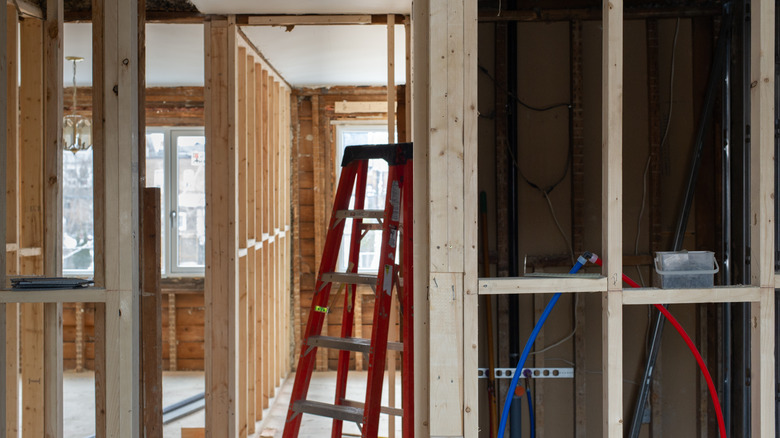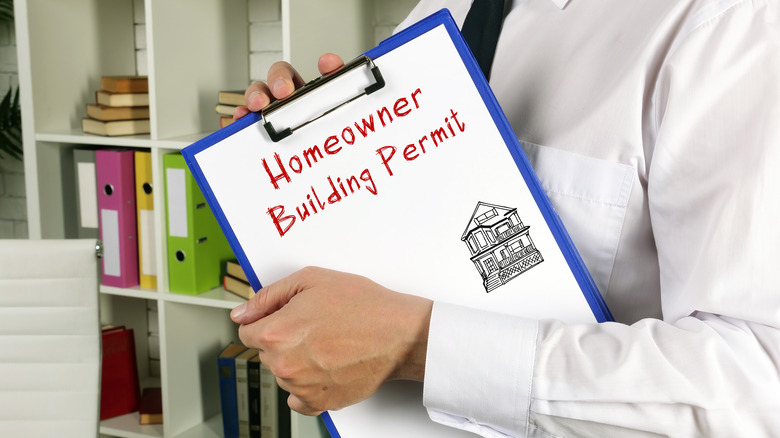What Does Pulling A Permit Mean In Home Renovation?
It's time to get some projects wrapped up at your home, so you contact a general contractor. The professional comes to your home, provides an estimate, and is ready to get started. Before they do, however, ask them if they plan to pull a permit. They may tell you that they are "pulling a permit."
Typically, property owners want to be sure the work done at their home meets their expectations. It should add value, not take away from the home. Most property owners expect the work a professional does to be safe and done to minimize any risk, especially when it comes to electrical, plumbing, and structural work.
Investopedia notes that even if you hire a licensed professional, it's still the homeowner's responsibility to understand permitting rules. How does a permit play a role in this? What does it mean, then, when the contractor says they plan to pull a permit as the next step in your project? Here's what you need to know.
How permits work
Pulling a permit means the contractor is going to let the city know what work they're doing, get permission to do so, and ensure it's done according to the city's building code.
Building permits differ from one city to the next. These are not state or federal laws but local building laws, and not all areas require them. The only way to know if you need one is to call the city and ask.
According to Nolo, some of the most common projects requiring permits include those that add or remove walls, re-roofing of homes, demolition, or significant plumbing changes. Most often, larger projects that could impact the structural integrity, safety, or function of a home may need a permit pulled.
Other tasks typically do not require one, such as painting the home, changing out appliances, or replacing the floors. Most often, the contractor doing the work for you should know if they need a permit if they've worked in your city before.
What if no one pulls a permit
Pulling a permit, the act of actually requesting one from the city, is generally something you expect the contractor to do before any work starts on the project. If the city building code officer shows up at your home and there's no permit, that could mean fines and costly changes to the project if they're not approved.
Not all contractors pull permits, though, and some require the property owner to do this themselves. In some situations, the homeowner is responsible for obtaining a permit even if the work is underway. If the city learns the project lacks a permit, they may issue significant fines even after the project is complete. You may need to apply for a permit after the fact, says Angi, to ensure the work fits the city's building code requirements.
There's no reason not to get one, though, before you gut your home. It may be a hassle to have that extra oversight, but often, these building codes help ensure contractors complete projects safely.


